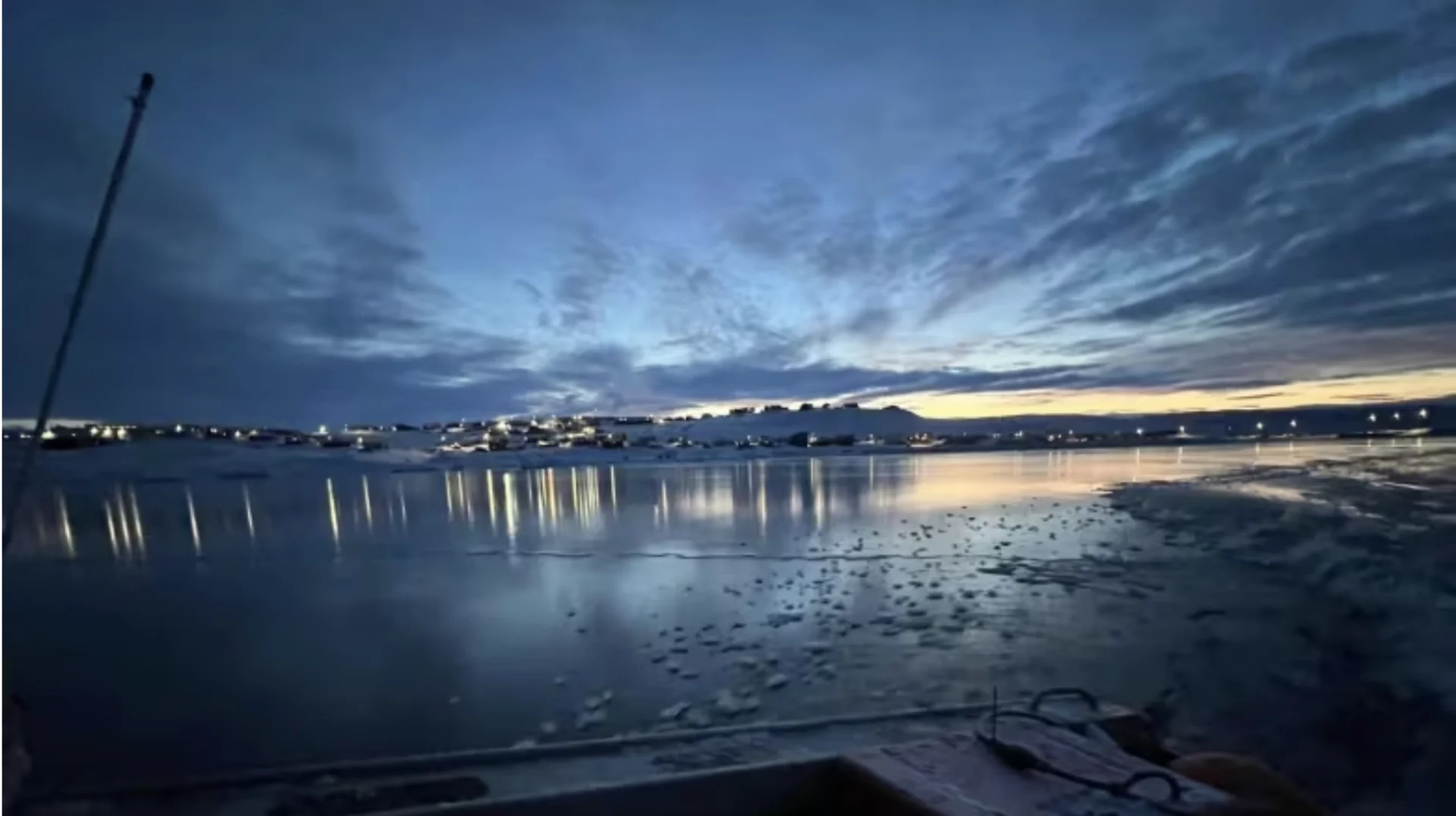
Delayed ice formation in Northern community disrupts hunting season
It's a sight Andrew Arreak says he's never seen before in Pond Inlet: open water at a time when the sea ice should be thick enough to sled on.
Some people are still going out in boats. Others are finding alternate ways of accessing the land, since the ice they rely on for hunting and fishing is now a month late forming. In the Arctic hamlet of about 1,600 people, high winds keep pushing the sea ice away from the community, Arreak said.
Arreak is a researcher based in Pond Inlet who works for SmartICE, a social enterprise that works with northerners to install stationary and mobile sensors to gauge ice and snow conditions with real-time data. He says he's heard stories of similar ice conditions happening back in the 1970s, but not since then.
"In my lifetime, I haven't seen it at all," he said. "We are noticing today, that the ice is forming a little later and breaking off a little earlier each year."
SEE ALSO: Abnormal December heat may break records in Canada this week
Brad Drummond, a senior ice forecaster with Environment and Climate Change Canada, confirmed in an email that solid ice — or "fast ice" that can be used for hunting and fishing — is about a month late.
He said there has been "mobile ice" covering the area since late October.
"It was very briefly fasted to the coast in early to mid-November before becoming mobile again," Drummond wrote. "Typically, the ice would fast around early to mid-November and remain that way until break up in July."

A view of Pond Inlet, Nunavut, on Dec. 5, from a boat. (Christopher Atagootak/Facebook via CBC News)
SEE ALSO: Arctic's 'Last Ice Area' may soon disappear during summer months
Weather data for November and December shows many windy days, with gusts at one point topping 80 kilometres an hour.
The community also saw temperatures above zero toward the end of November and beginning of December.
This comes in the midst of what has been the warmest fall on record for some Nunavut communities.
It's made it increasingly difficult to hunt, said Titus Allooloo, a patrol sergeant with the Canadian Rangers.
Allooloo told CBC in Inuktitut that hunters have had to travel on the land this year instead of the ice.
Arreak said he and his team at SmartICE are monitoring the situation and are keeping residents informed about ice thickness and safety.
WATCH | Temperatures were 20-30 degrees above average in the Arctic at the start of December:
This article was originally published for CBC News. Contains files from Emma Tranter and Noel Kaludjak.










